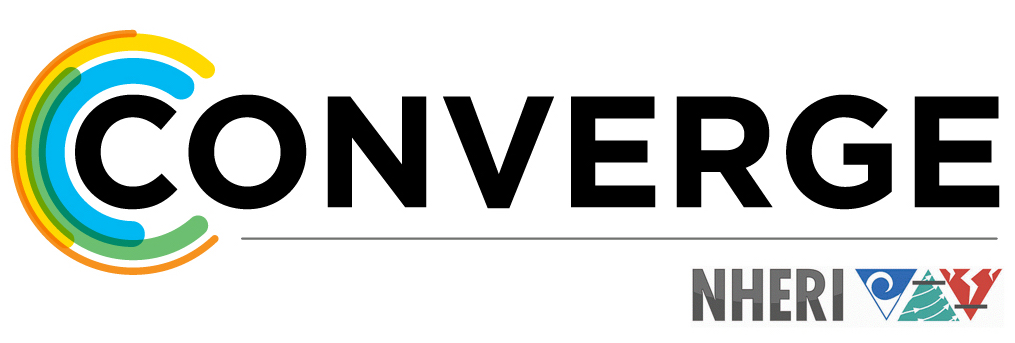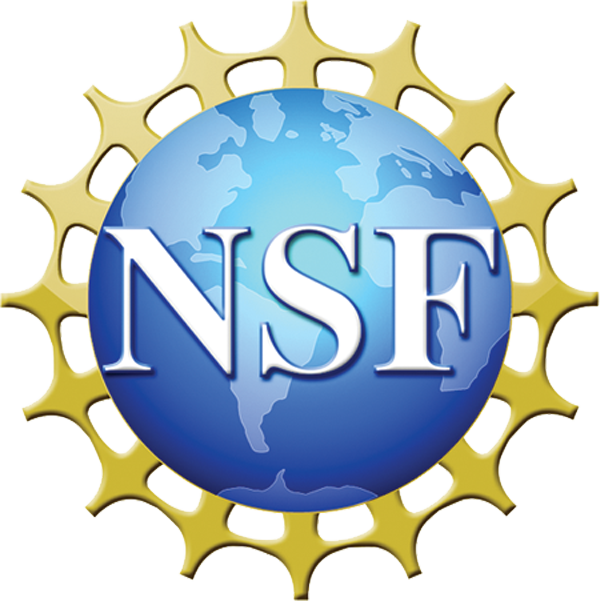CONVERGE
Coordinated Social Science, Engineering, and Interdisciplinary Extreme Events Research

Project Overview: The National Science Foundation Natural Hazards Engineering Research Infrastructure (NHERI) supports research that improves the resilience and sustainability of civil infrastructure against natural hazards to reduce loss of life and injury, damage, economic loss, and other forms of societal disruption. NHERI is a distributed, multi-user national facility that provides the natural hazards research community with access to research infrastructure. NHERI is currently comprised of separate awards for a Network Coordination Office, Cyberinfrastructure, Computational Modeling and Simulation Center, and earthquake and wind engineering and rapid reconnaissance Experimental Facilities. To extend the NHERI portfolio and more fully connect it with the social science hazards and disaster research community, this project creates a CONVERGE Facility to be headquartered at the University of Colorado Boulder Natural Hazards Center, that will coordinate hazards and disaster researchers and link them to the existing NHERI scientific plan, facilities, cyberinfrastructure, and technological resources. It also advances platforms, networks, mobile research applications, cyberinfrastructure, and research opportunities for Social Science Extreme Events Reconnaissance (SSEER) and Interdisciplinary Science and Engineering Extreme Events Reconnaissance (ISEEER). Through CONVERGE, ISEEER will serve as the connecting body for the GEER (Geotechnical Extreme Events Reconnaissance), STEER (STructural Engineering Extreme Events Reconnaissance), and SSEER networks and the NHERI RAPID Facility and NHERI DesignSafe-Cyberinfrastructure.
Project Outcomes: The CONVERGE Facility establishes and supports a new Extreme Events Reconnaissance Research Leadership Corps that connects researchers from different disciplines, develops best practice guidelines for reconnaissance research, and supports public communications in the event of a major disaster. Additionally, this project advances social science and interdisciplinary reconnaissance efforts by identifying, mapping, and collecting relevant information on SSEER and ISEEER researchers and offering free online training to inform research efforts across the disaster life cycle. In the event of a NHERI-relevant natural hazard, the facility will encourage and fund rapid reconnaissance efforts that seek to understand and reduce systemic risk among vulnerable people, structures, and places. Finally, the project will develop mobile applications in collaboration with the NHERI RAPID Facility to expand next generation data collection and analysis strategies for social science researchers and interdisciplinary teams and create an open-access social science data repository for collecting, archiving, curating, publishing, and sharing data through a partnership with NHERI DesignSafe-Cyberinfrastructure at DesignSafe-ci.org. This project connects diverse groups of specialists and scholars to advance the practice of conducting rapid reconnaissance research in a way that is holistic, scientifically rigorous, and ethically grounded.

This award reflects NSF's statutory mission and has been deemed worthy of support through evaluation using the Foundation's intellectual merit and broader impacts review criteria.
Principal Investigator: Lori Peek, Natural Hazards Center and Department of Sociology, University of Colorado Boulder Lori.Peek@colorado.edu
Postdoctoral Research Associates: Rachel Adams, Natural Hazards Center, University of Colorado Boulder (Rachel.Adams-1@colorado.edu)
Mason Mathews, Natural Hazards Center, University of Colorado Boulder (Mason.Mathews@colorado.edu)
Haorui Wu, Natural Hazards Center, University of Colorado Boulder (Haorui.Wu@colorado.edu)
Graduate Research Assistants: Simone Domingue, Natural Hazards Center, University of Colorado Boulder (Simone.Domingue@colorado.edu)
Candace Evans, Natural Hazards Center, University of Colorado Boulder (Candace.Evans@colorado.edu)
Melissa Villarreal, Natural Hazards Center, University of Colorado Boulder (Melissa.Villarreal@colorado.edu)